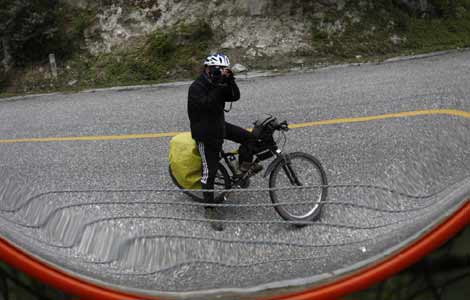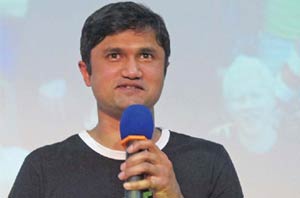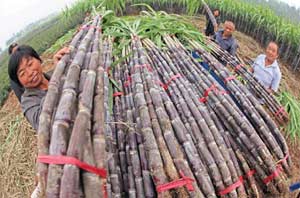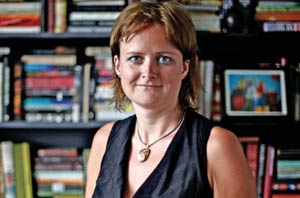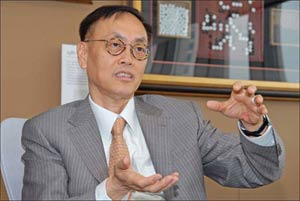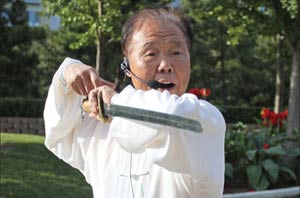Let's look beyond the sugar coating
Updated: 2011-10-07 11:14
By Klaus Ebermann (China Daily)
|
|||||||||
China and Europe would be wise to re-evaluate their ties in a rapidly changing world

The pace of change in the world is accelerating rapidly. Within a few years we have witnessed an unprecedented leveling between countries traditionally rich and powerful and others, still recently not so well off, "emerging" - or in the case of China "re-emerging" - or even poor and hardly influential.
Debtors have become creditors and vice versa. The financial and economic crisis has hit well-to-do OECD countries much harder than the formidable BRIC (Brazil, Russia, India, China). Others, too, have accelerated their economic performance to reduce or even close the gap with the rich. Vietnam, South Africa, Turkey and even Egypt have had rates of growth that they can be proud of. We in Europe are feeling the heat, as does the US. There was a tectonic shift initially, but the crisis has become a turbo compressor for profound and rapid change.
People feel it, newspapers write about it. The traditional powers are losing their luster, realizing that their influence in international politics may have shrunk. Soft power shows itself to be more resilient than hard power. Lifestyle, technology and creativity defy political limits. Internet applications, cultural impulse, design innovations are cases in point.
New players appear on the screen and show how influential they have become. Non-State actors can turn the world upside down. Just look at the power of financial markets with their daily turnover of foreign exchange and currency markets close to 3.8 trillion euros. Governments try to stem the tide, but no single national budget is big enough to offset the pressure. Multilateral responses are the only way to respond.
However, traditional diplomacy has its limits. Soft power is a rather new parameter. So is the speed of contagion in economics and finance. So is the unease with greed and selfishness or the decay of value systems we are fighting. Change, and not always for the better, has already been profound and fast. New ways for diplomacy to absorb it are required.
The realities of our new world should be the basis and agenda of our talk. Traditional relationships and interests may have to be revisited to reflect the change. Multilateralism, global rules and governance have to be the aim. But their building blocks are made up of creative, innovative and strong players, be they single, come forward bilaterally or in alliances. They give it the flavor, the impetus and fresh content; They give it the ultimate strength.
We both, China and Europe, contribute. China is powerful and strong, a cradle of civilization and culture, a beacon of economic performance. So is Europe, still the largest trader and most affluent consumer market. Creative, innovative - be it engineering quality products or launching the mobile phone revolution - and "soft" with its brands, luxury goods or green leadership. It takes much of its strength (and, it must be acknowledged, some problems) from the diversity of its peoples and traditions.
Both of us have much to give. But are we both, each in our own way, and following our own agenda, making the strongest possible impact on international rule making and institution building? Are we both drawing the maximum benefit out of our bilateral relationship? I do not think so, and believe we can do much better.
So, with so much change under way, should this not be a moment also to review our relationship? Could this be the moment to work for a "reset" in our relationship, drawing us closer to each other in a relationship of trust? A relationship different in kind, by definition, from the "reset" of US-Russia relations; a relationship built on mutual respect and understanding and into which both sides put what they are particularly good at; a relationship which would allow us to address the realities of today's world.
We have a strong foundation on which to build. Looking at the history of our relationship, we have come a long way. We were both very busy with ourselves over about 50 years, before we looked into the magnifying glass of the World Trade Organization, which China and the EU put on the same screen. We discovered each other, we learned from each other. Business relations, science and technology exchange led us into some kind of honeymoon in the middle of the first decade of this century.
And yet, with hindsight, one realizes that underneath this sugar coating has remained a gaping hole. A political deficit prevented us from embarking on comprehensive cooperation on global matters, looking for common ground on strategic security issues, addressing world affairs. And if they were addressed, it tended to be controversial rather than conducive to finding the compromise that could have carried global weight and could have made a difference. Just remember the finger pointing after the Copenhagen climate change summit in 2009.
We have moved on from there. There is strategic dialogue. There is the Cultural Forum. The summit just held in Tianjin had a level of attendance and an agenda unthinkable only a few years ago. And yet, as China's ambassador to the EU has rightly pointed out this year, some kind of cloud still hangs over China-EU relations. This is not yet the relationship of trust where both sides do not shy away from delicate issues, be they controversial, be they sensitive or be they new.
To address challenges to societies, to promote the values and the well-being of citizens, trust is required. Such is the case with China and the EU with their multitude of dialogues in various spheres.
Far too often we look for problems and take for granted achievements. We cannot be surprised then that people know little of each other and rest on stereotypes. It is a shame that in a recent worldwide survey the perception of China was most critical in Europe, and more or less in balance in the US, and more positive in Africa. We have to do some homework here.
As for China's perception of the "old continent", its creativity and resilience should not be written off, be it in engineering or design, in devising new social models for society, or in being in the vanguard of sustainable development.
It can be no surprise that Europe is a leader when it comes to the quality of life and the well-being of its citizens.
We are competitors in our own markets and on world markets, and there is nothing wrong with that. We are champions of fair and strong competition because experience shows it is a driver for competitiveness and innovation. There is no problem with that.
For me a more important thing is the absence of security or strategic rivalries between us. Rather, we share global concerns such as climate change, sustainability, non-proliferation, multilateralism. We have competing and different models of society and of running our countries, but this should not prevent us from finding common ground and bringing to our relationship whatever we are strong and successful at. That includes lifestyle, youth culture, Internet society, urban quality of life, accountability, humanities, and management of change. There is so much experience to share, nothing to loose, but much to gain
So many Chinese students are learning at European universities. Huge numbers of European students are learning Chinese and are lining up for traineeships in China. Excellent, and excellent, too, that this year has been labeled the Year of Youth in China-EU relations. However, waiting for the next generation to do better than we have done so far would be a big mistake. The world is not waiting for us. The European debt crisis, the US deficit, financial speculation, Arab uprising, famine and lack of water supplies, and the crisis of the middle classes, climate irregularities are all are shaping our world. And, as is already clear, they will create seismic shifts that will unsettle old norms, relationships and practices. We had better respond in good time. It can be done.
The author is the EU's former ambassador to China. The opinions expressed in the article do not necessarily reflect those of China Daily.




